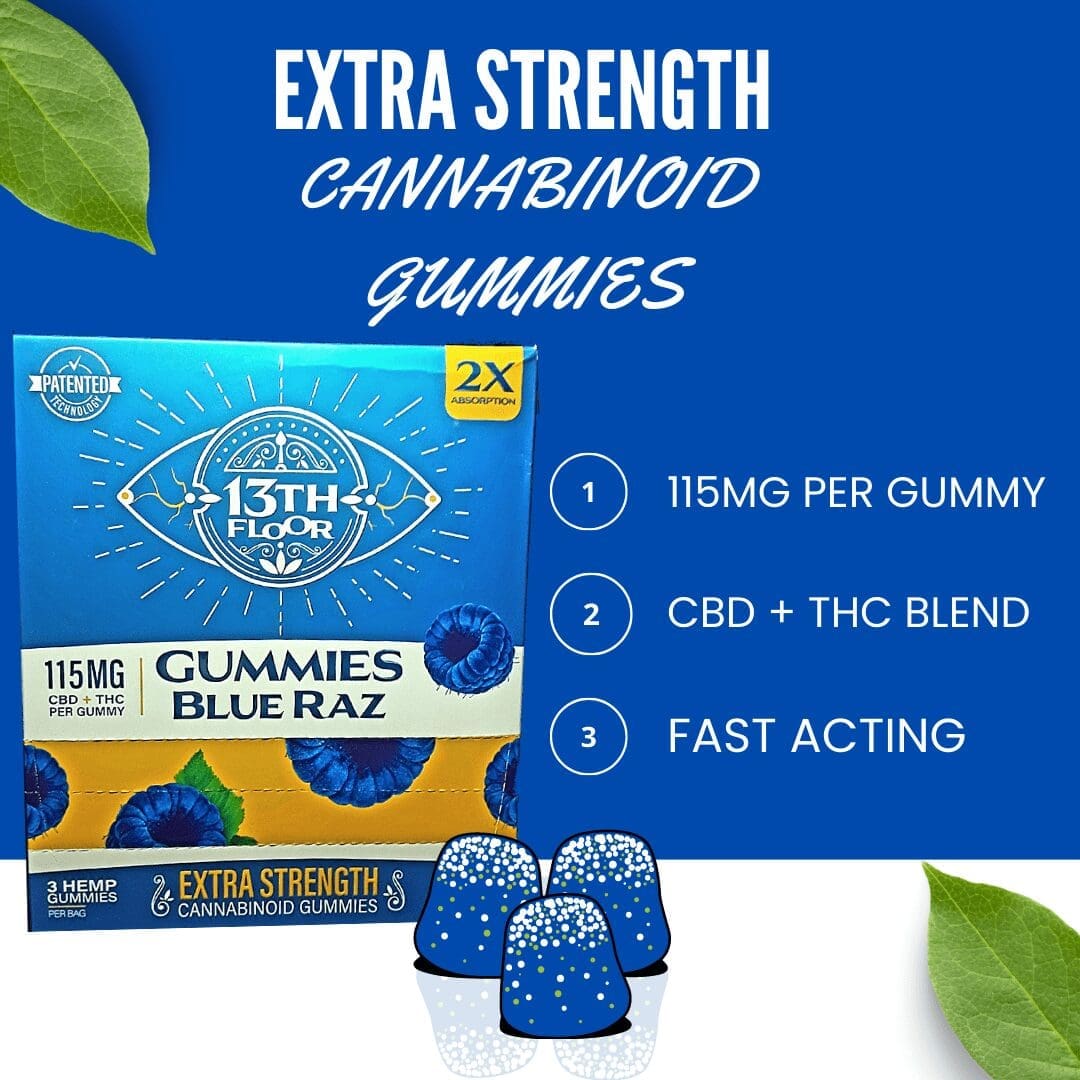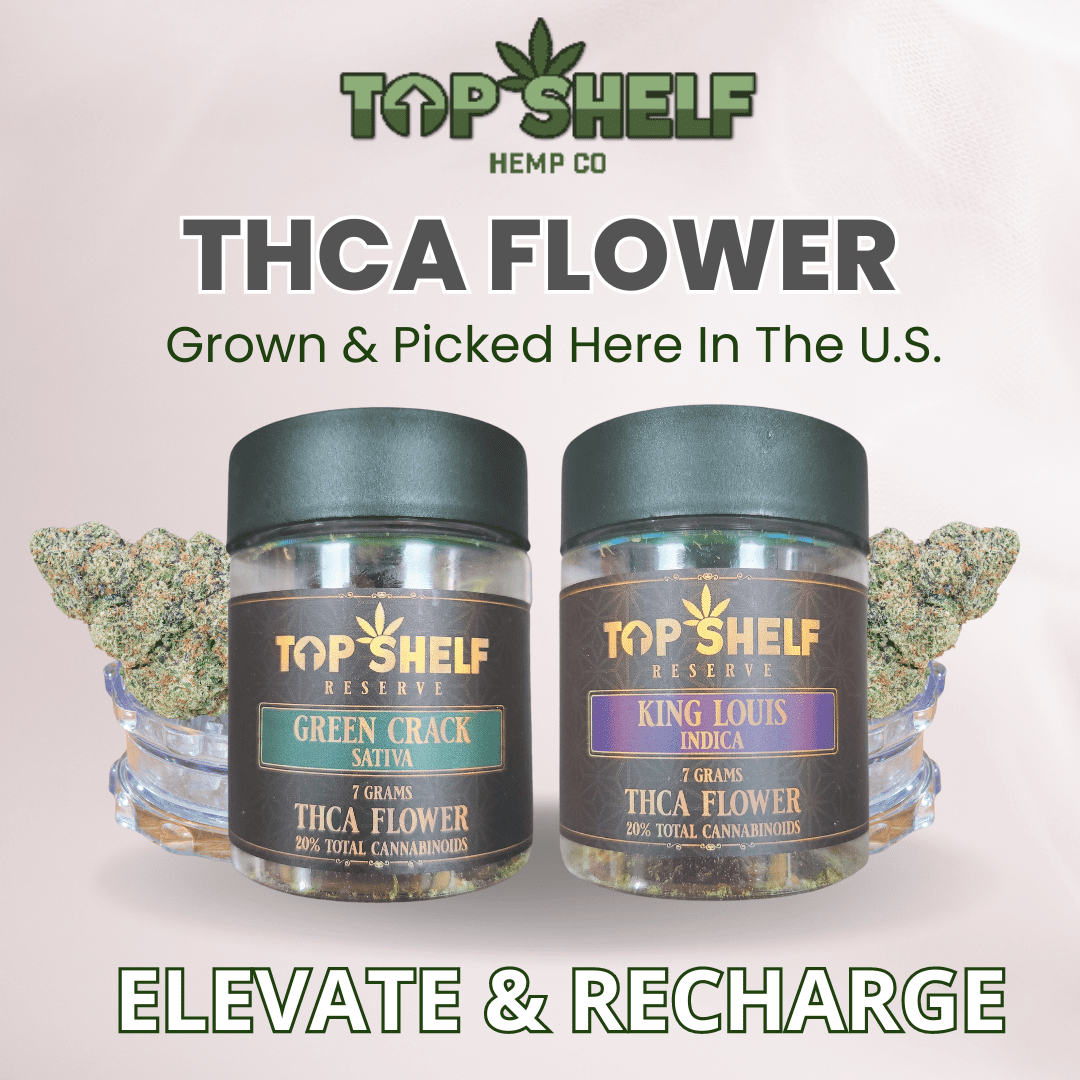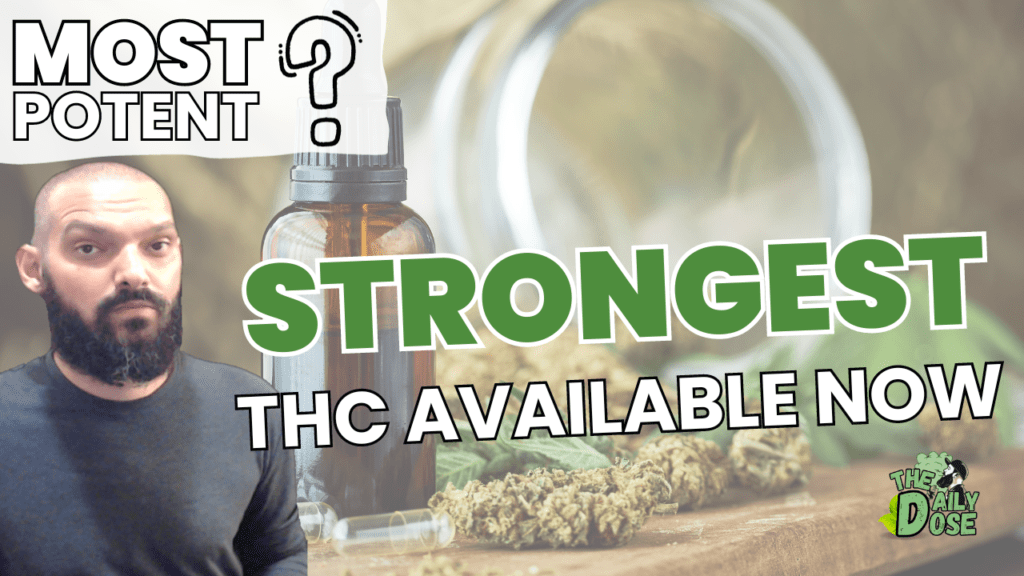To listen to the podcast checkout the link below The Daily Dose Podcast Audio
Strongest THC Out Now Explained
Introduction
THC, short for Tetrahydrocannabinol, is a well-known cannabinoid found in the cannabis plant. It is responsible for the psychoactive effects associated with cannabis consumption. However, there is a lesser-known cannabinoid called THCp, which has been gaining attention for its potential medical benefits and unique properties.
In this article, we will explore what THCp is, how it differs from THC, its potential medical applications, safety considerations, and the future of this intriguing cannabinoid.
Understanding THC (Tetrahydrocannabinol)
What is THC?
THC is a naturally occurring compound found in the resinous glands of the cannabis plant. It belongs to a class of compounds known as cannabinoids, which interact with the endocannabinoid system in the human body. When THC is consumed, it binds to the CB1 and CB2 receptors in the brain and nervous system, leading to various effects on the body and mind.
How does THC work?
Once THC interacts with the CB1 and CB2 receptors, it affects neurotransmitter release, resulting in alterations in perception, mood, and cognition. This interaction is what causes the “high” or euphoria commonly associated with cannabis use. Additionally, THC has pain-relieving, anti-inflammatory, and antiemetic properties.
Effects of THC on the body and mind
THC’s effects can vary from person to person, depending on factors such as dosage, individual tolerance, and method of consumption. Some common effects include relaxation, increased appetite, altered sensory perception, and heightened creativity. However, it can also lead to adverse effects such as anxiety, paranoia, and impaired cognitive function in some individuals.
Different Forms Of THC
Ever since the Farm Bill of 2018 there have been many discoveries of THC. There are new forms that have been produced primarily due to the research and development now allowed by this law.
Here Is A Short List Of The Different Forms Of THC
| Delta 8 THC | Delta 9 THC | Delta 10 THC | THC-O | THC-P | HHC | THC-A |
|---|

Introducing The Strongest THC: THCp (Tetrahydrocannabiphorol)
What is THCp?
THCp, or Tetrahydrocannabiphorol, is a recently discovered cannabinoid that shares similarities with THC but differs in its molecular structure. Unlike THC, THCp is believed to be more potent in its effects, and early research suggests it may have unique medical benefits.
THCp vs. THC: Similarities and differences
While both THC and THCp are cannabinoids found in the cannabis plant, they have distinct chemical structures, leading to variations in their interactions with the endocannabinoid system.
THCp’s effects on receptors might be more intense and longer-lasting compared to THC. Additionally, THCp is found in smaller quantities in cannabis, making it relatively rare compared to THC.
Research on THCp
Discovering THCp
The discovery of THCp is relatively recent, and researchers are still in the early stages of understanding its full potential. Its presence was first noted in a study in 2019, and since then, interest in its effects and applications has grown significantly.
Current state of THCp research
As THCp is a relatively new discovery, research is ongoing to explore its therapeutic properties and potential medical applications. Preliminary studies suggest that THCp may have promising effects on pain management, neuroprotection, and inflammation, but further research is needed to validate these findings.

Potential Medical Benefits of THCp
Pain management
One of the potential medical benefits of THCp is its effectiveness in pain relief. It is believed to have a stronger analgesic effect compared to THC, which could be beneficial for individuals with chronic pain conditions.
Neuroprotective properties
THCp has shown some neuroprotective properties in early studies, indicating its potential in protecting nerve cells and potentially benefiting conditions such as multiple sclerosis or Parkinson’s disease. However, more research is required to confirm these effects.
Anti-inflammatory effects
Inflammation is linked to various health conditions, and early research suggests that THCp might have potent anti-inflammatory effects. This could open doors to new treatments for inflammatory conditions like arthritis.
Appetite stimulation
Similar to THC, THCp may have appetite-stimulating effects, which could be beneficial for individuals suffering from appetite loss due to medical conditions or treatments like chemotherapy.

Legality and Regulation of THCp
Legal status of THCp
As THCp is a newly discovered cannabinoid, its legal status is currently unclear in many jurisdictions. While some countries have explicitly banned all cannabinoids, others might not have specific regulations for THCp.
Regulatory challenges
The legal ambiguity surrounding THCp poses significant challenges for researchers, healthcare professionals, and consumers. The lack of clear regulations makes it difficult to access THCp for medical research and potential therapeutic applications.
Consumption and Dosage
How to consume THCp
THCp is likely to be consumed in similar ways to THC, such as smoking, vaporizing, or ingesting through edibles or tinctures. However, due to its potentially higher potency, users should exercise caution when determining the appropriate dosage.
Recommended dosage
As research on THCp is still in its early stages, there are no established guidelines for dosage. Users interested in trying THCp should start with a low dose and carefully monitor its effects.

Safety and Precautions
Side effects of THCp
While THCp’s potential benefits are exciting, it may also have side effects similar to THC. These can include dry mouth, red eyes, impaired coordination, and dizziness.
Interactions with other substances
THCp’s interactions with other medications or substances are not yet fully understood. It is essential to consult a healthcare professional before using THCp, especially if you are taking other medications.
Risks and precautions
Individuals with a history of mental health conditions, heart problems, or substance abuse should exercise caution when considering THCp use. Pregnant or nursing individuals should avoid THCp consumption altogether.
The Future of THCp
As THCp continues to capture the attention of researchers and cannabis enthusiasts alike, its future remains uncertain. Further studies are necessary to establish its safety, efficacy, and potential medical applications. The legal landscape surrounding THCp will also play a significant role in determining its future availability and usage.

Conclusion
In conclusion, THCp is an emerging cannabinoid with exciting potential in the medical field. While its effects and applications are still being researched, early findings suggest that it may offer unique benefits for pain management, neuroprotection, inflammation, and appetite stimulation.
However, given its recent discovery and lack of clear regulations, caution should be exercised when considering THCp consumption. As research progresses, we may gain a better understanding of THCp’s capabilities and its role in the world of cannabinoids.
FAQs
Is THCp legal everywhere?
Can THCp get you high?
How is THCp different from CBD?
Is THCp addictive?
Are there any studies on THCp’s effects on mental health?
Related Articles:
- Vape or Smoke THC Which Is Better
- The Top 5 THCO Products out Now 2023
- THC Edibles Myths And Facts A Simple Guide
- Hemp THC Banned By DEA Schedule 1
- Delta 8 THC Legal Status Explained Now
Meet The Author





